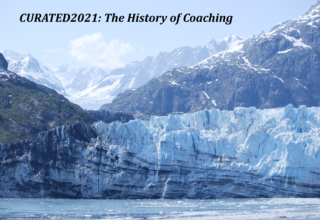
[Note: This essay first appeared in a 2009 issue (No. One) of the International Journal of Coaching in Organizations]
[Material for this article draws upon David Rock and Linda J. Page, Coaching with the Brain in Mind: Foundations for Practice. San Francisco: John Wiley & Sons, 2009.]
Anthony Grant (2003) cites an article by C. B. Gorby published in I 937 as the first use of the word “coaching” in the context of business and organizations. The concept is related to Elton Mayo’s “nondirective interview” (1933) and human relations approaches to management. The term “coaching” was expanded beyond its use in athletics under the influence of Timothy Gallwey (200 I). A number of practices, training programs, and associations converged in the l 990’s to become the International Coach Federation (ICF, www.coachfederation.org). At this time, many change agents such as self-help gurus, educators, consultants, organizational development practitioners, industrial/ organizational psychologists, human relations advisers, psychotherapists and counselors (see Brock, 2008) took on the designation “coaches.”
Many coaches, especially those with a background in academia, wondered about the theory and research base for coaching. A group of scholar-coaches including Irene Stein issued a call for papers (Stein & Belsten, 2004) and organized a Coaching Research Symposium prior to the ICF Conference in 2003. In the introduction to the proceedings, Stein suggested the metaphor of a tree representing contributions to a field of coaching studies. Its theoretical roots consisted of education, psychotherapy, communication studies, self-help movement, social systems theory, athletic motivation, adult development theories, holistic movement, and management and leadership (Stein, 2004, p. ix). Vikki Brock (2008) interviewed scores of coaches to identify the theories and scholars that had influenced them. Recent years have seen an increase in research initiatives (see for example, The Foundation of Coaching, www.thefoundationofcoaching.org and its successor, the Coaching Institute, www.instituteofcoaching. org) and academic programs that teach or utilize coaching (see research by the Graduate School Alliance for Executive Coaching, www.gsaec.org). This journal and the International Consortium for Coaching in Organizations (www.coachingconsortium.org) are examples that apply directly to organizational coaching.
WHAT IS ORGANIZATIONAL COACHING?
In order to answer questions about the theoretical foundations of coaching, it is necessary to define the field in general and specifically with regard to its applications in an organizational setting. It has been easier to say what coaching is not than to say precisely what it is – not athletic coaching (although it draws on the wisdom of the best sports coaching), not consulting, not mentoring, not psychotherapy, not counseling, not advising….
Download Article 1K Club
















